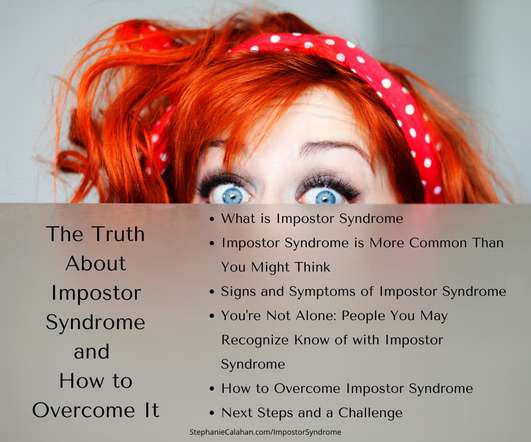The Truth About Impostor Syndrome and How to Overcome It
Stephanie LH Calahan
FEBRUARY 4, 2020
Impostor Syndrome reflects a belief that you are inadequate and, or incompetent despite evidence that you are skilled and successful. Also, self-sabotage happens often for people with Impostor Syndrome. You dislike the idea of having a coach/mentor because you can (and should) handle things on your own.












Let's personalize your content